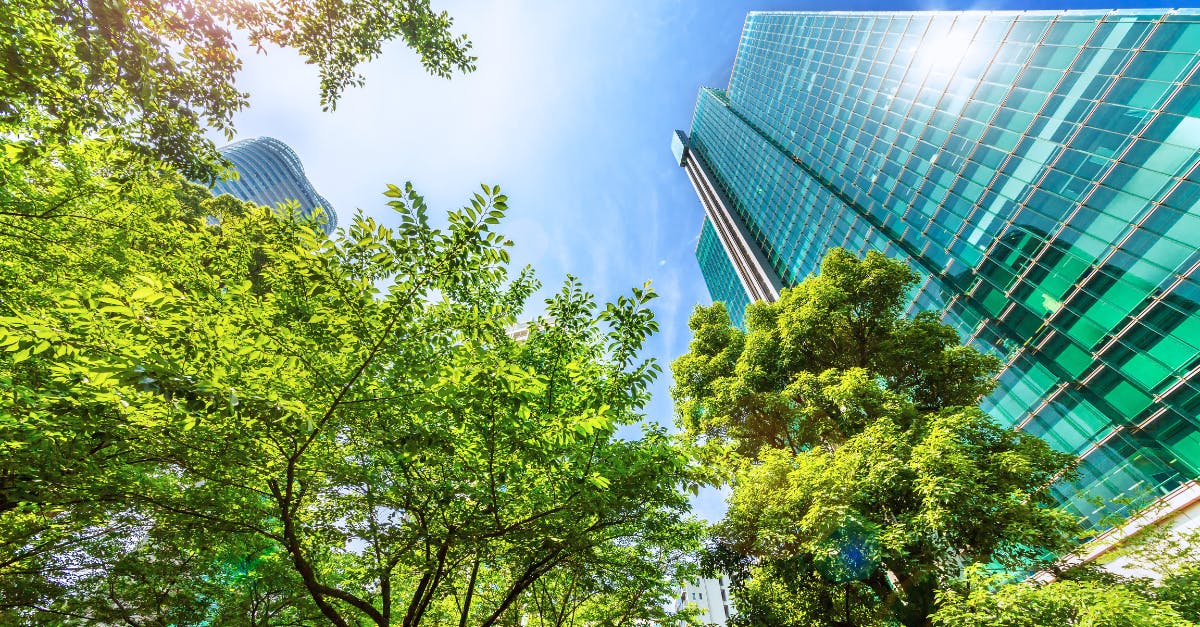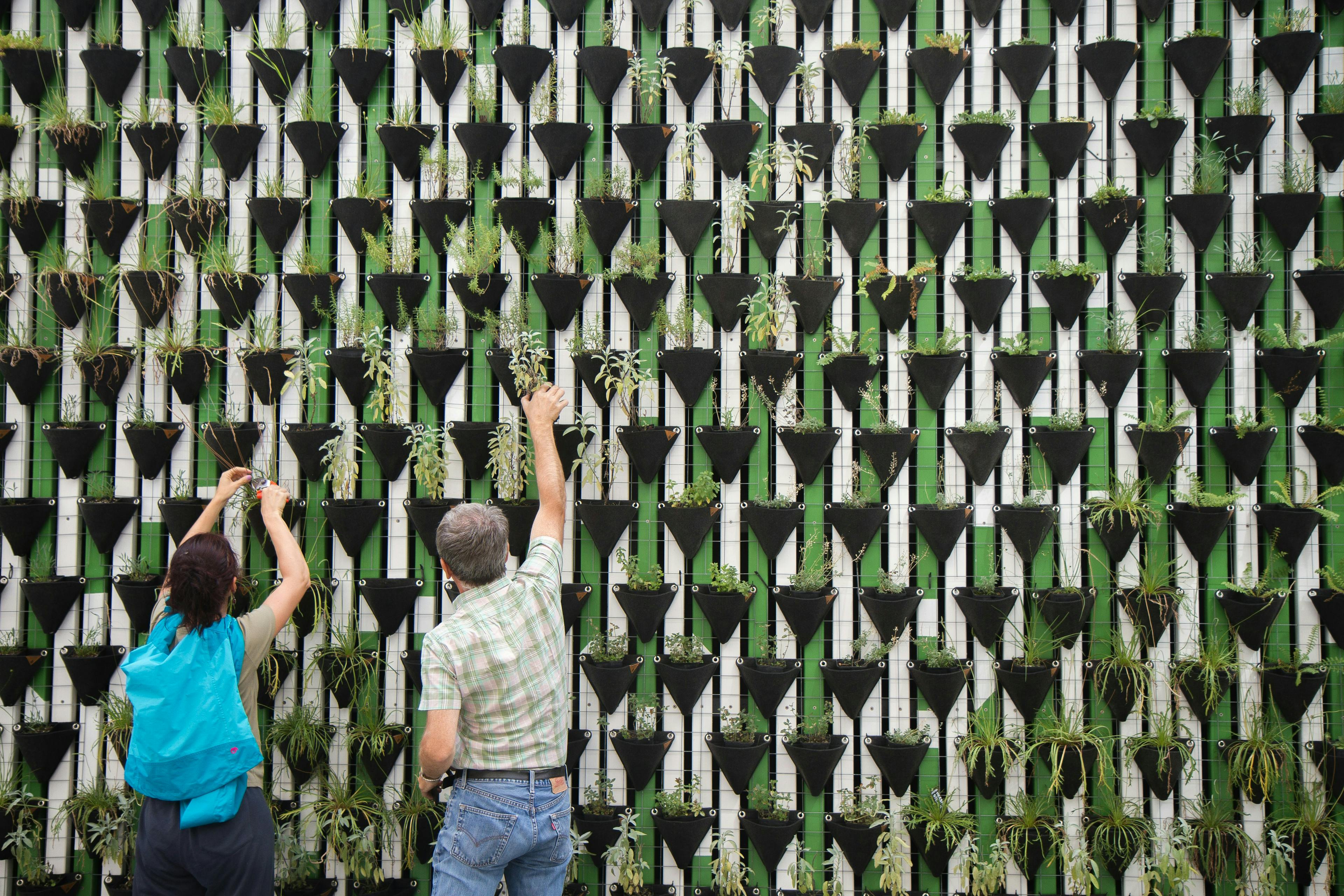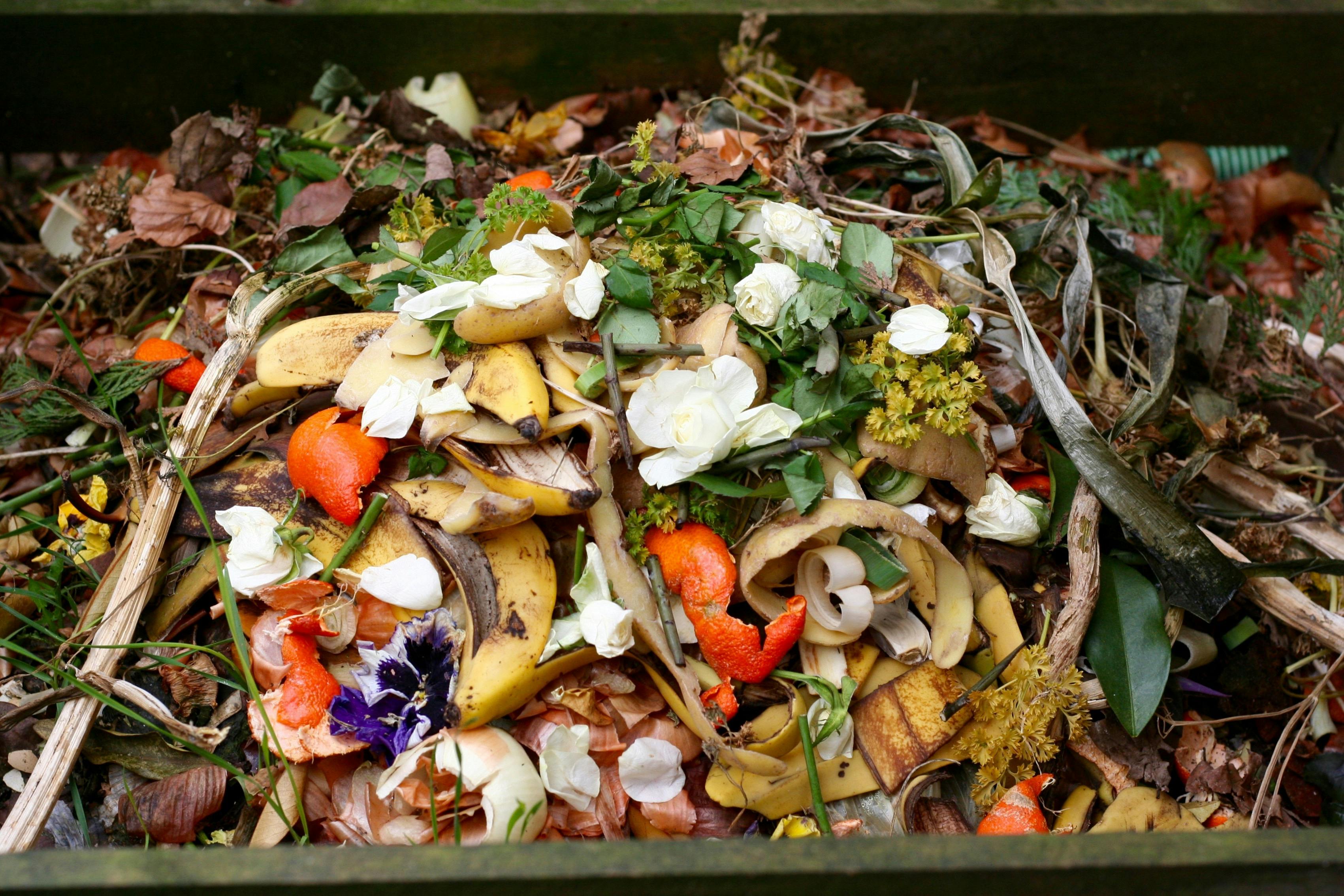
Liveable Cities Newsletter
Written by
Dr Jenni Garden, Principal Consultant - Ecology and Liveable Cities Lead
Our Liveable Cities newsletter is your go-to source for stories, ideas, and strategies that help shape urban environments into thriving, resilient, and nature-positive spaces.
The content below is just an extract from the full newsletter.
To access the full version, subscribe to our newsletter today.
In this issue of our Liveable Cities Newsletter we celebrate some of the tangible changes we are starting to see within Australia and overseas around nature protection and restoration, and a shift away from nature as a part of cities and towards cities as a part of nature.
We're also excited to celebrate and introduce Edge Impact’s new CEO, Alison Rowe, and delighted that Alison has shared some of her personal connection with nature by telling us about her favourite tree in our A-Tree-Ciation.
Aussie Spotlight
Green Building Council of Australia’s (GBCA) Nature Roadmap

The Green Building Council of Australia (GBCA) is developing a Nature Roadmap. This Roadmap will redefine how development is done, and the role of the built environment in biodiversity enhancement and nature regeneration. The Roadmap aims to ensure the built environment sector proactively creates spaces that directly and actively contribute to enhancing nature and biodiversity within our cities and towns.
It is being built around the following five principles that seek to address goals at the site, surrounding environment, and supply chains levels: (1) protects nature; (2) connects nature; (3) uses low-impact materials; (4) renews nature over time; and (5) brings nature and communities together. In this sense, the Roadmap advocates for net biodiversity gain within sites, protecting sensitive areas, encouraging development on previously developed land, understanding and improving supply chains, and integrating First Nations’ approach to Designing with Country.
A discussion paper about the Roadmap is currently out for public consultation (until 30 June) – and provides an opportunity for industry to help co-design how the built environment will respond to nature, and shape how this will impact legislation and supply chains.
To have your say click here.
Green Building Council of Australia’s (GBCA) Nature Roadmap

Green Adelaide has released its draft Urban Greening Strategy for metro Adelaide– the first of its kind for South Australia. The strategy outlines the city’s ambitious vision with supporting tangible actions to create ‘…a resilient and liveable Adelaide for all: cooler, leafier and more biodiverse.”
The strategy leverages evidence-based insights to educate and excite people about the importance of urban greening and promotes practical greening actions to enhance the liveability of Adelaide.
If you’re based in SA, now is the time to have your say! Green Adelaide is encouraging all community members and organisations to provide feedback that will help inform the final Strategy. The public consultation period is open until 28 June, 2024.
Tree Trails in Willoughby Council

Edge is excited to have delivered another Tree Tags Trail project, this time with the development of Willoughby City Council’s Hallstrom Park and Willoughby South Tree Trails.
The trails were developed as part of Council’s "Love Your Trees" campaign, an initiative aimed at raising awareness about the importance of urban trees in creating liveable neighbourhoods and promoting community health and well-being.
With a range of native and exotic tree species on both trails, visitors and residents can pick up a brochure from the Incinerator Café or the Council's Customer Service Centre, or can download a digital copy to print off themselves.
The brochure will allow people to follow the trails and discover the local nature, learn about just some of the benefits offered by urban trees, and even crack a secret coded message!.
For further information click here.
Government Architect NSW: Biodiversity in Place

The Department has done it again! It has released another great framework called "Biodiversity in Place" produced by the NSW Government Architect.
This document provides guidance on reintroducing nature and biodiversity into urban environments by incorporating ecology-rich plantings across various urban elements like streets, backyards, public spaces, and infrastructure corridors.
It aims to reconnect people with natural systems, create cooler and more liveable cities, provide habitat for wildlife, support biodiversity, improve mental health, and beautify urban spaces.
Read the document here.
The Playbook for Urban Biodiversity

The Playbook for Urban Biodiversity was developed by the Melbourne Centre for Cities (University of Melbourne) as a key output from the Urban Nature: Urban Myths Symposium held in May 2023.
The Playbook aims to guide practices and policies that promote biodiversity within Australian cities. Through a series of actionable steps, it addresses barriers that hinder the implementation of urban nature initiatives.
It offers strategies applicable across global, state and national, and local scales with scalable solutions. The Playbook for Urban Biodiversity is a great resource for decision-makers, practitioners, and communities to embrace and enhance biodiversity within urban areas.
Read the Playbook here.
Transform the built environment with our integrated sustainability services. From planning to deconstruction, we collaborate with clients for positive change.
Learn more about our Built Environment Services.
International Spotlight
Biodiversity Net Gain in the UK
The UK’s new legislative requirement for biodiversity net gain (BNG) is now active! The requirement became mandatory as of February 2024 for all new major urban developments, and as of April 2024 for smaller developments.
As a result, developers must now demonstrate as part of the application process that their project will deliver a minimum 10% net gain in biodiversity, measured using the statutory biodiversity metric, and in accordance with biodiversity gain hierarchy; meaning gains must first be achieved on-site, then supplementary gains can be achieved through off-site habitat creation/enhancement on their own land, and as a last resort, by purchasing statutory biodiversity credits from the government.
Nature Restoration Law
In February 2024, the European Parliament passed the landmark Nature Restoration Law – on 17 June 2024, the first-of-its-kind legislation was approved by the Council of the European Union, meaning it is now a fully enforceable law! This legislation is a historic win for EU nature and makes a significant contribution to the KMGBF targets by requiring the European Union to restore at least 20% of its lands and seas by 2030 and all ecosystems in need of restoration by 2050.
One of the key provisions of the Nature Restoration Law is the creation of 15,000 hectares of urban green spaces by 2030 to improve air quality, biodiversity, and the well-being of city dwellers.
Upcoming Conferences
- World Green Infrastructure Congress - 3-5 September, Auckland, NZ
- 25th National Tree Net Symposium - 12-13 September, Adelaide, Australia
- Future City Green World Congress - 23-26 September, The Netherlands, EU
- Global Nature Positive Summit - 8-10 October 2024, Sydney, Australia
A-Tree-Citation
A huge thank you to Edge’s new CEO, Alison Rowe, for providing this issue’s A-tree-ciation. Alison’s selected tree is definitely one that is also close to my heart, having grown up not too far from this tree and it’s more well known relative, the Curtain Fig Tree. Here’s Alison’s story:
This ‘Cathedral Fig Tree’ is a strangler fig (Ficus virens) growing in the Danbulla National Park and State Forest, part of the Wet Tropics World Hertiage Area on the central part of the Atherton Tablelands, 70km (1.5hr) south-west of Cairns, in Far North Queensland. The tree is spectacular and breathtaking and is over 500 years old. The crown is as big as two swimming pools and towers nearly 50m in height!
In 2022 I had the extraordinary opportunity to be here at sunrise and the Gambi Yidinji people welcomed me with a traditional smoking ceremony. I heard the stories from the First Nations peoples about the importance of this tree and Country. I heard the singing of the whip birds and I felt such an inner peace and respect for nature in all that is provides us.

If you'd like to share your news, projects, and successes feel free to get in touch with Jenni Garden directly at jenni.garden@edgeimpact.global or contact us here.
What we do
As experts in the full spectrum of sustainability topics, we are here to guide you through the complexity. Our team includes specialists from across the globe; from strategists to economists, engineers to creatives. Since 2008, we have been helping businesses, organisations, industries and societies make transformation happen.
Our areas of expertise are focussed around the following areas:
Leadership and Transformation
ESG and Strategy
Decarbonisation and Climate Resilience
Circular Economy and Lifecycle Thinking
Procurement and Supply Chain
Nature and Biodiversity
Brand, Communications and Creative





